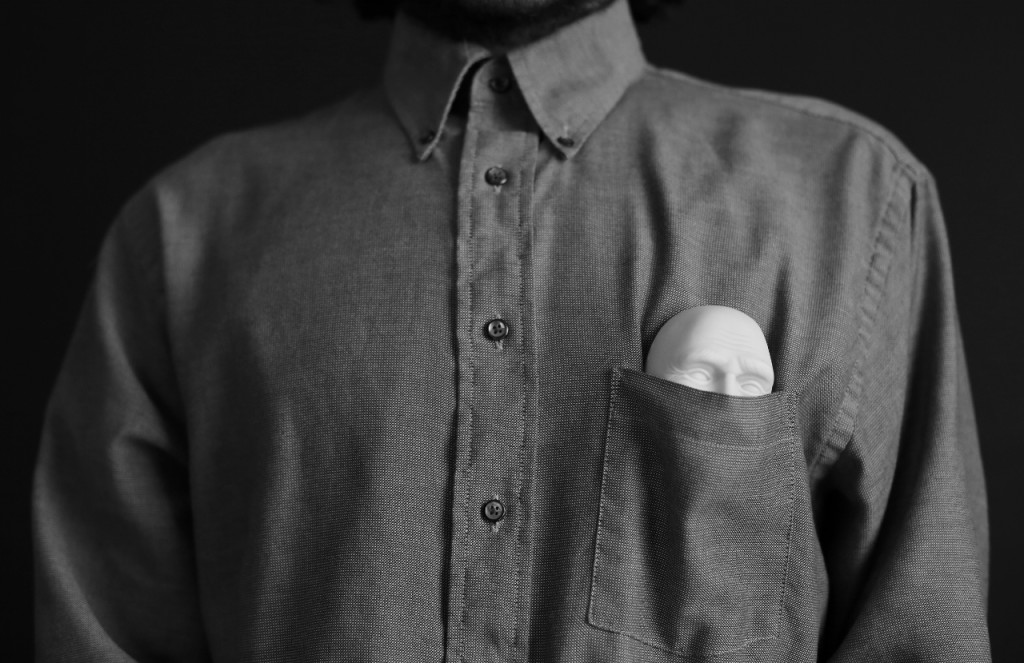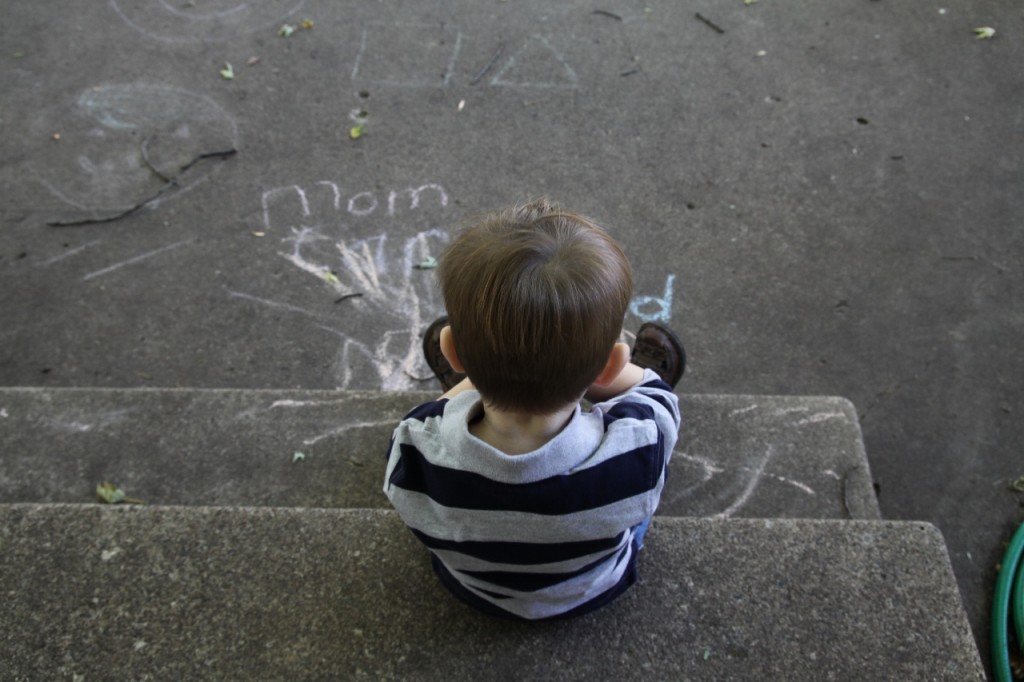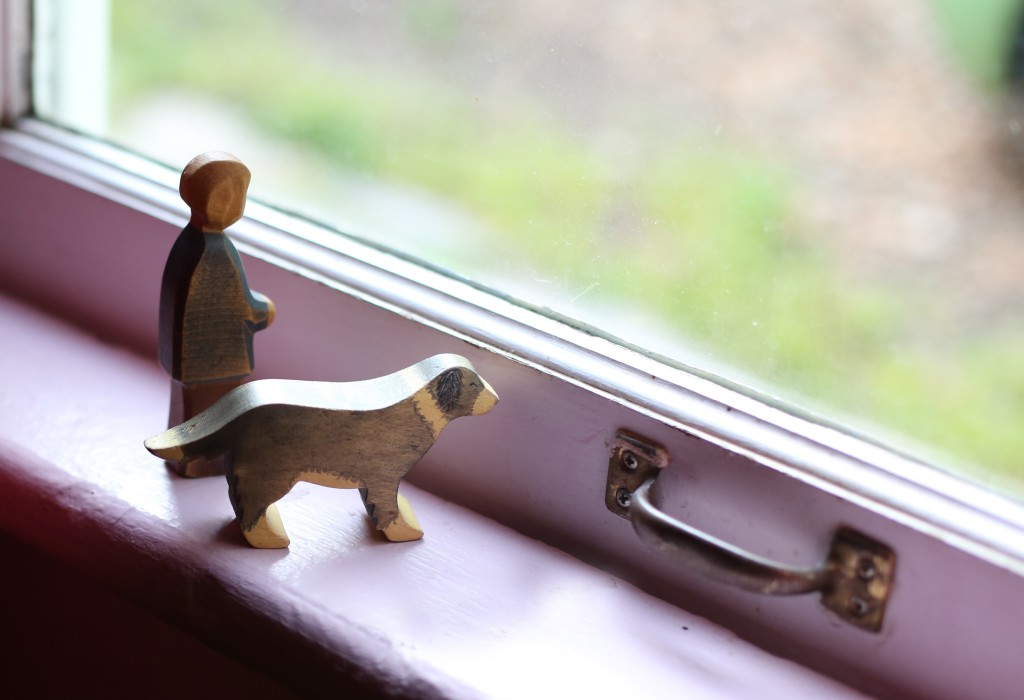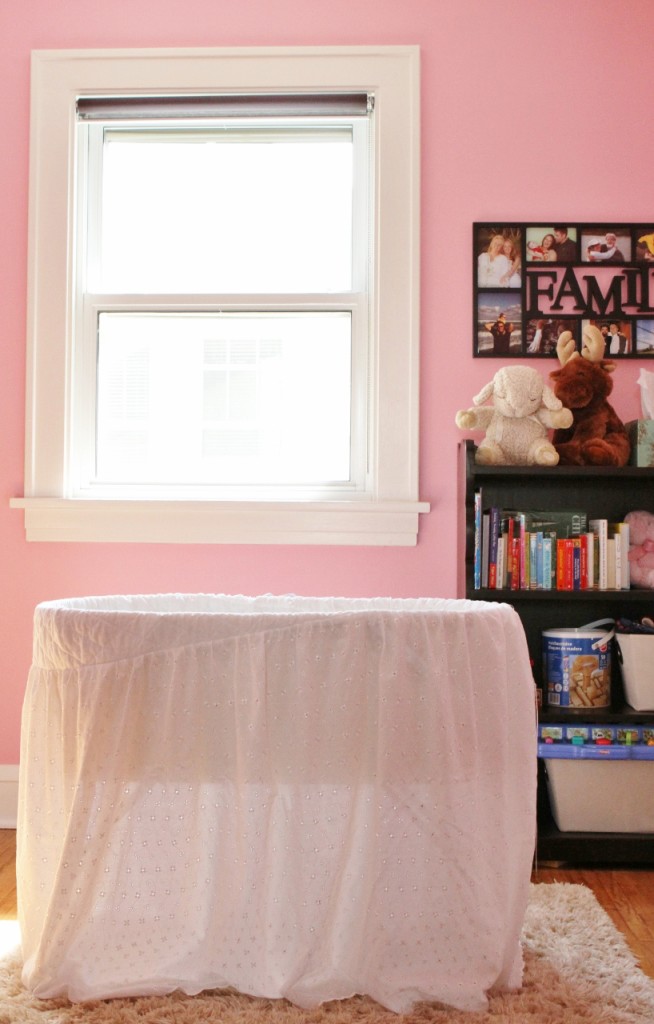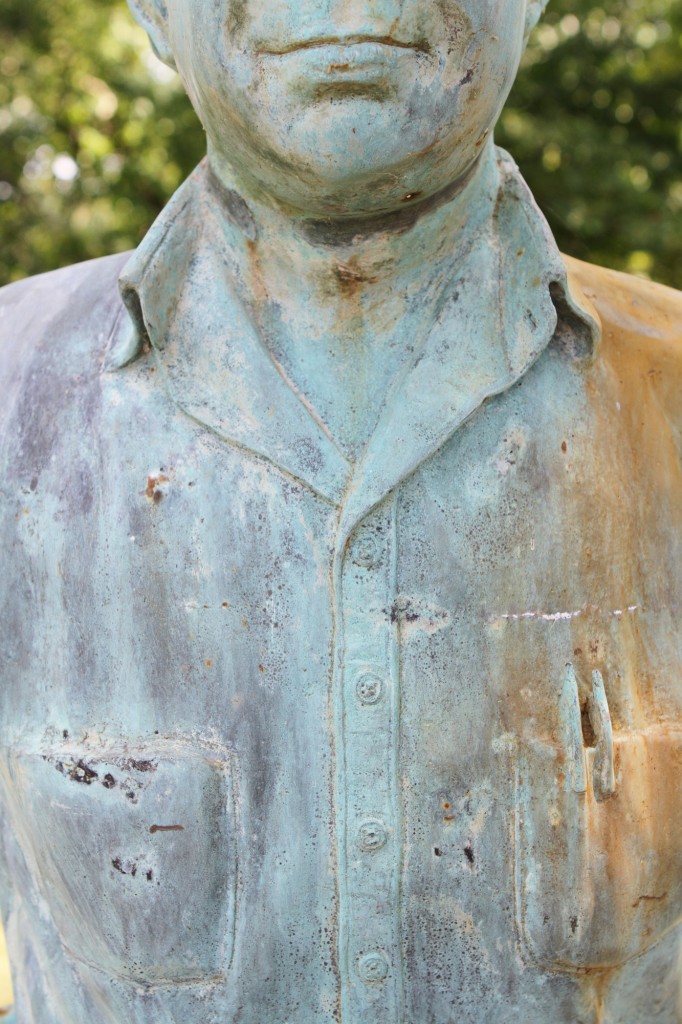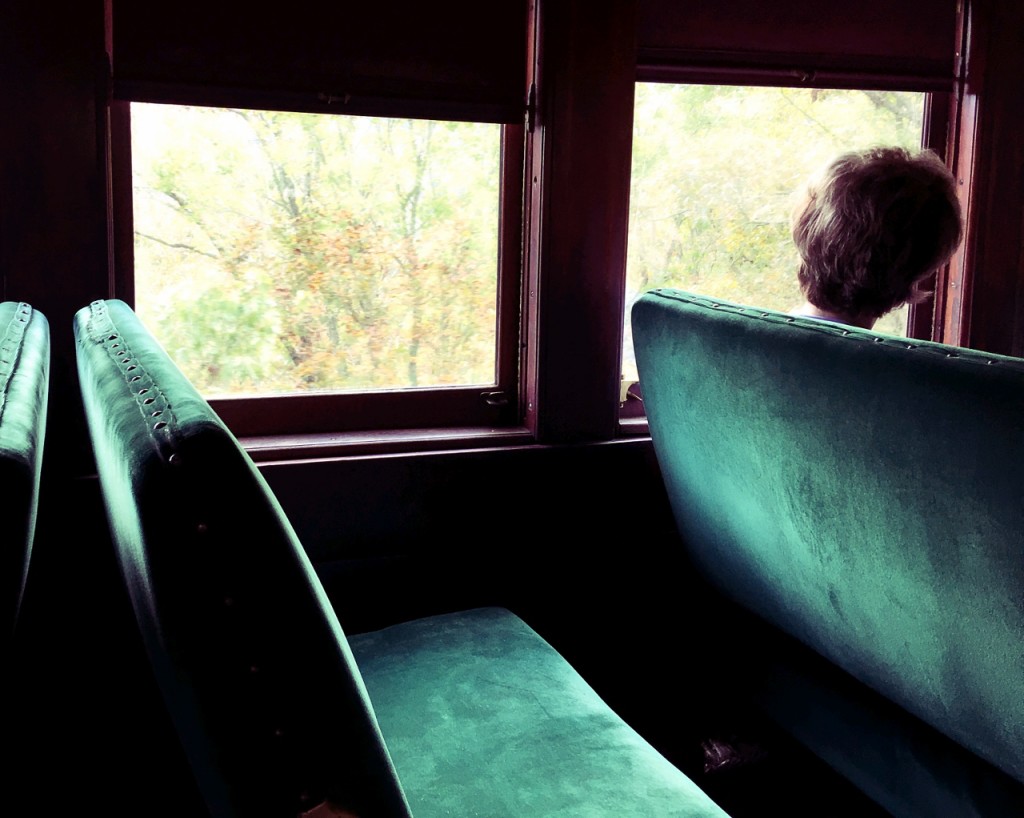
By Ona Gritz
I walked up Fifth Avenue on a crisp, sunny morning in late winter, the wind lifting my hair and burning my ears.
My sister’s birth name lay nestled somewhere within two thick volumes in the Millstein Division of The New York Public Library. I paused to gaze up the wide marble steps flanked by those famous stone lions named Patience and Fortitude, the two qualities I most needed to find one name amid all the birth records for New York City in the year of Andrea’s birth.
I recognized the librarian on duty as the man who, a month earlier, carefully explained to me, without once making eye contact, that if I had a copy of my sister’s amended birth certificate, I could match the number with her birth record and learn her name.
“Amended birth certificate?” I’d asked, digging in my bag for a notepad and pen.
“The one they make up when an adoption is finalized. It has the adopting family listed as the parents.”
“What happens to the original?”
“It’s locked away.”
The following week I’d gotten lost in a maze of damp side streets in lower Manhattan as I searched for The Department of Vital Statistics on Worth Street. Finally, I found it, just past Leonard Street, a small lane bearing my father’s name. I filled out the necessary forms and, three weeks later, the amended certificate arrived in the mail.
Now I pulled the two thick volumes marked 1956 off the shelf and lugged them to a wooden table. My friend Julia was coming to help me search, so I placed one of the books in front of the empty chair across from mine. On top of that I laid an index card I brought to use as a straight edge, the crucial four digit number—2483—written boldly in black ink
All around, people typed on laptops or flipped through musty smelling tomes. I settled in and studied the layout of the book. Three alphabetical columns with an initial for the borough and the certificate number next to each name. I’d learned from her birth certificate that Andrea was born in Staten Island, known as Richmond, a gift since R’s in the borough column were relatively rare.
I’d made it through six pages when Julia arrived, her silver curls gleaming above a dark blue scarf. She sat down and opened the heavy book before her.
“Exciting!” she mouthed.
Julia and I have been friends for over twenty years. She stayed at my apartment in the first weeks after her marriage ended. When mine followed soon after, she attended my divorce hearing where she pulled an assortment of cookies and a book of inspirational quotes from her purse. She’s an emergency contact on all of my son’s school forms. Recently, when she was taken to the hospital after having a seizure, I stayed with her through the long night.
“Should we call your family?” I’d asked while she sat on a gurney waiting to be brought in for tests.
She shook her head. “You’re family,” she said.
I learned early to find sisters out in the world
•••
After an hour and a half, I was still in the A’s, my back growing stiff, my butt numb. Regardless, I slowed down each time I came across a Staten Island baby, reading and rereading the entry. When I finally reached the B’s, I let myself dwell for a moment on the reams of pages still to go. I started to worry that maybe I had skipped over my sister’s listing, mistaking that crucial R for a Kings County K.
Bronx, Manhattan, Bronx, Manhattan, Manhattan, Manhattan, Kings. Finally a Richmond.
“I found her!” I heard myself blurt.
Julia came to my side of the table and read over my shoulder as I carefully copied the spelling of my sister’s many-lettered name.
“I am Andrea B—’s sister,” I said aloud once we were out of the quiet library, enjoying the name’s rounded Italian sounds.
Julia grinned at me.
“How thoughtful of her to have an initial at the front of the alphabet,” I chattered on as we threaded through the crowds on Sixth Avenue. “I expected it to take days.”
•••
“I know my sister’s birth name,” I announced to my sixteen-year-old son when he walked in the door later that afternoon.
Ethan dropped his heavy backpack on the floor.
“Cool—what is it?”
“B—.”
He peered at the fat pillows of ravioli I had floating in a pasta pot. “Huh. Is that why we’re having Italian?”
•••
Andrea’s birth family had always been an abstraction to me, a part of her story so out of reach, I felt free to fictionalize. I imagined her mother as a tough, raspy-voiced beauty like Lauren Bacall. But Andrea B—’s mother was, or is, an actual person with a name unusual enough that she could potentially be found.
Late that night, after Ethan had gone to bed, I opened my laptop and looked up the name on whitepages.com. I hadn’t put in a city or state, but the first B— to come up was Pauline in Staten Island. She was eighty-six years old.
•••
“I don’t think it would be fair of you to contact Andrea’s mother,” my cousin Lauren told me on the phone. “She’s an old woman who probably assumes her daughter has had a decent life and is alive and well right now. Is finding her really worth taking that away?”
I saw her point, but now that there was a real chance that I might meet my sister’s mother, I couldn’t let go of it.
“I’ll be very thoughtful,” I promised. “I’ll choose my words carefully.”
“Would you lie to her? Because if you tell her the truth about how Andrea died, she’ll be devastated.”
For one crazed moment I considered pretending to Pauline that I was Andrea, middle aged and thriving.
“Trust me,” I said.
•••
Pauline’s number was unlisted but I had an address, so I composed a letter.
Dear Ms. B—,
We don’t know each other but I believe we may have a relative in common. My adopted sister, Andrea, was born in Staten Island on July 26, 1956. I’ve been doing some research on my family and recently discovered that Andrea’s original last name was B—.
My sister was beautiful, smart, and loving. I’ve always wished to know more about her. If you are related to her and wouldn’t mind contacting me, I would love to hear from you. Andrea meant a great deal to me. The fact that she was part of my family was the greatest gift. If you, by chance, helped to make that so, I am very grateful.
I Googled the address to be sure that I had it right. There, onscreen, I saw that this wasn’t a private house as I’d assumed, but a senior center. I sensed a door swinging open, a welcome mat placed before my feet. My mother had volunteered at a senior center through most of my childhood, one that resembled a hotel with visitors wandering through all the time.
Google also provided a phone number. Heart pounding, I grabbed my cell.
A woman with a wobbly voice answered. “Can I help you?”
“Uh, yes. Are there specific visiting hours?”
“No. We live in apartments. But you should make arrangements with the person you’re coming to see, don’t you think?”
“True… Would you happen to have a list of the phone numbers?”
“I do. Are you a relation?”
“Yes,” I answered quickly and gave Pauline’s name.
“Oh, she’s probably sitting in the lobby. Should I go see?”
My sister’s mother was probably there. She liked to sit in the lobby. Of course she did. She was a people-person like her daughter.
•••
When I was a child, it seemed to me my big sister had a magic people-magnet beneath her skin. I certainly couldn’t help following her from room to room, or through the maze of streets in our Queens neighborhood. We’d enter the candy store and the boys would drop their comic books back onto the stand to saunter over. We’d pass the high school and the girls lounging on the steps would call her name.
Always, Andrea roped an arm around my boney shoulder. “This is my kid sister,” she’d announce with pride.
But then a leaving-home magnet began to pull on my sister. She’d run away while I slept across from her in our yellow room, call to make sure my parents hadn’t changed the number or the locks, reappear smelling like a mix of home and the wide outside world, and then disappear again.
Eventually, she wandered three thousand miles away, to San Francisco, and stayed there. In time, she settled down and became someone we could visit and reach by phone.
Then, at twenty-five, she was drawn to the wrong people. Police found her body in a crawlspace, a towel tightly knotted around her neck.
•••
Pauline B— wasn’t in the lobby the day I tried to call her, thirty years after the murder of a girl to whom she might have given birth. The receptionist gave me her number, which I added to the contacts in my cell.
That weekend, I stood before Ethan in carefully chosen clothes.
“Do I look approachable?” I asked him.
“You’re over-thinking this, Mom,” he said.
•••
At the senior center where my mother had volunteered, residents populated the bright lobby throughout the day, talking or gazing out the windows. This was the image I had in my mind of where I’d meet Pauline, somewhere it would be easy to go unnoticed as I scanned the faces for one that struck me as somehow familiar.
But this senior center appeared deserted. I opened the cloudy glass door and entered a vestibule with mailboxes, buzzers, and a second locked door. Peering through to a small, dim lobby, I saw two elderly women, one on a sagging couch, the other in a wheelchair. They were the only people inside.
As I bent to read the names beneath the buzzers, a guy who looked to be a handyman came through, letting me in.
The two women stopped chatting and watched me approach.
“Hi. Could you tell me … is there an office?” My thought was that a receptionist could call Pauline and prepare her for the intrusion.
“It’s closed on Saturdays,” the woman on the couch responded. “Why, what do you need?”
“Well, I’m here to visit someone.” I paused. “Do you know Pauline B—?”
“Pauline was just here,” the other said, more to her friend than to me.
“Yeah, you just missed her. She was down here a minute ago checking her mail.”
“She left?”
“I think she went that way.” The woman pointed away from the door, deeper into the building. “She’s probably upstairs.”
“Is she expecting you?” her friend asked.
“No.”
“Well, then she can be anywhere,” she pointed out.
The hallway on Pauline’s floor smelled like chicken soup and mothballs. I located her door, took a breath, and knocked. After a long few minutes, I pulled out my cell and called her. I heard the phone ring in her apartment, then a mechanized Hello in my ear.
When I returned to the lobby, the two women glanced up.
“Nothing?” asked the one on the couch.
“You should have called first,” her companion said.
“How loud did you knock? She might be napping. You have to knock loud enough to wake her up.”
The idea mortified me. “I don’t want to scare her.”
The woman got up heavily and walked to the door, which she propped open with her foot as she leaned out to reach the bells. A moment later, we heard a sickly buzz. “She’s there. Go back up and give a good, loud knock.”
Upstairs again, I rapped loudly and heard the faint sound of shuffling. The door was opened by a tall, stocky woman with a deeply weathered face.
“Hi…Are you Pauline?”
“Yes.” She looked at me quizzically.
“B—?”
“Yes.”
Where was Andrea? Not in the eyes or the shape of the mouth. Maybe it was silly to expect to recognize a twenty-five-year-old girl in the now ancient face of her mother.
“I came to see you because I believe we may have a relative in common.”
“A what?” she asked loudly.
Raising my voice, I annunciated more slowly. “I think we may share a relative.”
Pauline shook her head. “I still don’t understand what you’re saying, but come in.”
Just inside the door was a kitchen table. I sat down and glanced around. The small apartment was cluttered with heavy furniture, a once large home packed up and squeezed into these few rooms.
Pauline sat beside me and waited.
“I’ve been doing some research on my family. The reason I’m here is that I had a sister who was adopted.”
“Adopted. What a shame.”
“She was born here in Staten Island. Her name was Andrea.” I studied Pauline’s face for a reaction, but she was simply listening. “Andrea B—.”
“B—?” she repeated, pronouncing the name slowly and emphasizing the middle vowel. “Because, you know, that’s not the original spelling. My husband’s people changed it.”
B— was her married name? I wondered why a wife of the 1950s would choose to give her baby away.
“They come from Salerno, his people,” she continued. “If you’re interested in the B—s, you can search their whole history on the computer these days. Salerno, Italy.” She then asked if I’d heard of the Italian ship that shared her family name.
“Yes!” I knew exactly one story about Andrea’s birthmother. “My sister’s mother named her for the sister ship, the Andrea Doria,” I reminded Pauline, watching her carefully. “It sunk the day before Andrea was born.”
This seemed to hold no meaning for her. Finally it came to me that I might have the wrong person. Still, I pressed on. “Can I show you her picture?”
“She was adopted?” she asked, flipping through the small stack of photos I handed her. “Was she a happy child?”
“She was.”
“Everyone is interested in family these days,” Pauline mused. “They call me when they have questions, so I sent away for information. You could do that too, find out about the B—s going all the way back to Salerno.”
“What I’m really interested in is finding out about my sister.”
Pauline squinted at the picture on top of the pile and shook her head. “And she’s where now?”
“She died young.” I braced myself, but Pauline asked nothing further.
“Such a shame,” she said, “adopting away children. In my opinion, adoption should be illegal.”
“Illegal?” I felt so flabbergasted all I could do was echo the word. Had she somehow confused adoption with the politically fraught subject of abortion? But no, she’d asked about my sister’s childhood. She understood that my sister had been born and lived in the world for a time.
Pauline leaned toward me. “Are you a mother?”
“Yes, I am.”
“Can you imagine giving up your child?”
“Well, no. But you know, people have their reasons. Accidents happen.”
“Accidents. Now, you know better than that. My mother taught me that if you don’t want to have a baby, there’s only one activity you need to avoid.”
I stared at her. Pauline wasn’t my sister’s mother. She was that one disapproving aunt or cousin or sister-in-law everyone hid the family secrets from.
•••
“Why’d you start this now, after all these years?” my cousin Lauren wanted to know.
I sighed, pressing the phone to my ear. Of course it was ridiculous. By now, Andrea had been gone for more years than she’d lived.
“Maybe because there’s no one else left in my immediate family,” I ventured.
But the truth was, I missed my sister with an ache I couldn’t allow myself when I was a teenager; when she died so violently I needed to pretend she’d simply run off one last time.
“I think it’s a very good thing Pauline didn’t turn out to be her mother,” Lauren said.
“Probably so.”
Nonetheless, I wrote emails, Facebook messages, and letters to all the B—s I could find. There weren’t many—maybe seventeen people all together—who spelled their name with that swapped vowel at its center. One, a woman named Jacqueline, also lived in Staten Island, but she would have been only eleven when Andrea was born. Pauline was the sole B—of an age to have given birth in 1956.
She was also one of the few B—s with a current address listed correctly online. Soon, my mailbox filled with envelopes stamped with red accusatory fingers and the words address unknown. In the end, that was the closest to a response I received, my own letter boomeranging back to me in multiples.
All that came of my efforts was a lovely Latinate sound that sometimes ran through my head like a snippet of a song.
Andrea B—. With a whole name, my sister became whole to me in a new way. Like every child listed in those volumes on the library shelves, she had the open road of a future before her. Anything had been possible for her the day her name was printed on that page.
I told myself I was looking for answers when I chased after Pauline so determinedly, believing she was Andrea’s mother; I was seeking as complete a picture as possible of the girl who was my first love in this life. But, really, all I wanted was to be in Pauline’s presence. I wanted to hear the voice of the woman who birthed my sister, see an expression cross her face, watch her gesture with her hands as she spoke. I even wanted the smell of her, as if her very existence—her pheromones, anything about her—might, for just a moment, bring my sister home.
•••
ONA GRITZ is the author of five books, including the ebook memoir, On the Whole: a Story of Mothering and Disability (Shebooks, 2014) and the poetry collection, Geode, which was a finalist for the 2013 Main Street Rag Poetry Book Award. Her essays have appeared in The Utne Reader, MORE magazine, Purple Clover, Brain, Child, and elsewhere. Her essay, “It’s Time,” which appears in the Rumpus, was named a Notable Essay in Best American Essays, 2016. Ona just ended a twelve-year stint as a columnist for Literary Mama. She is currently at work on a book about her sister.

 Follow
Follow
